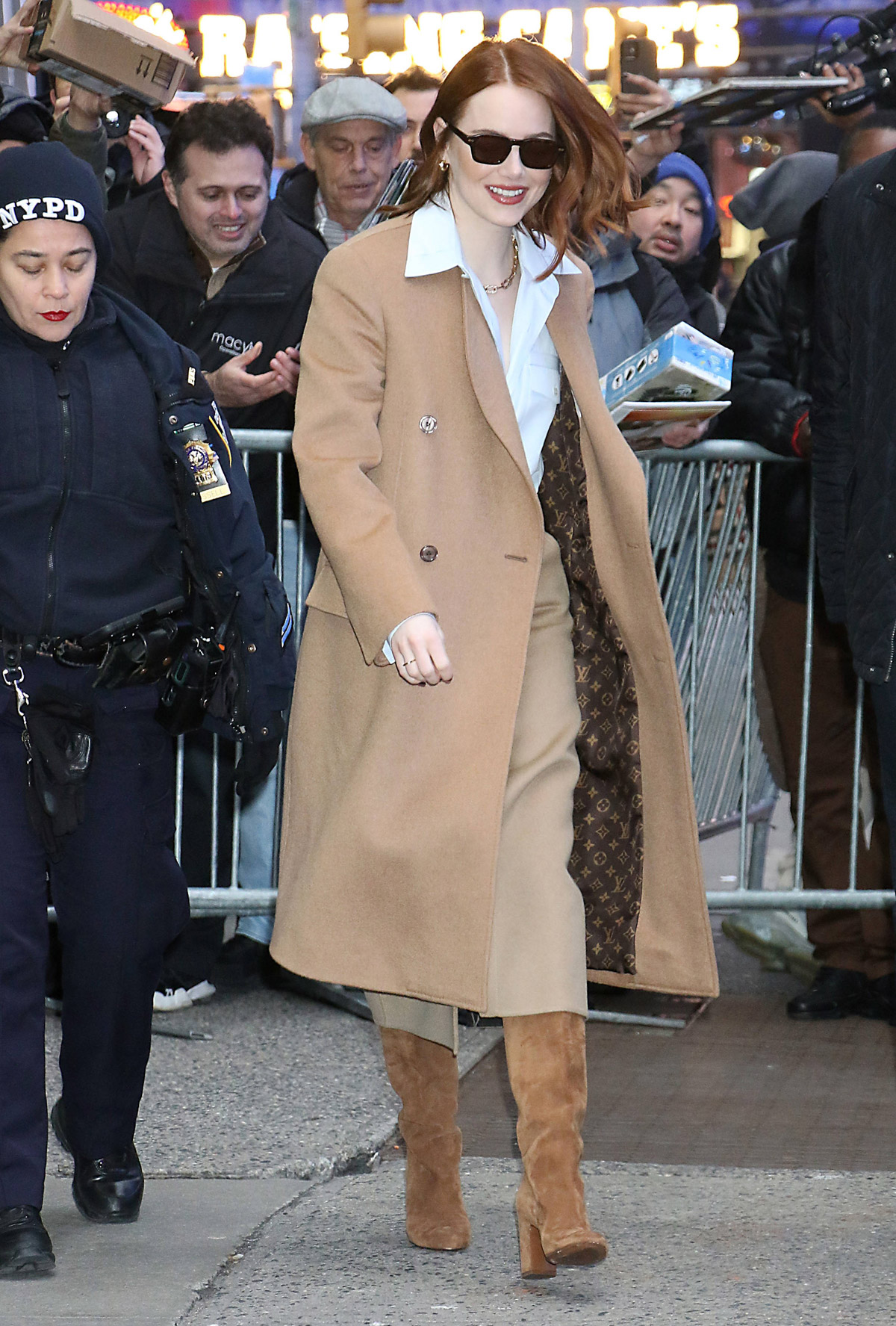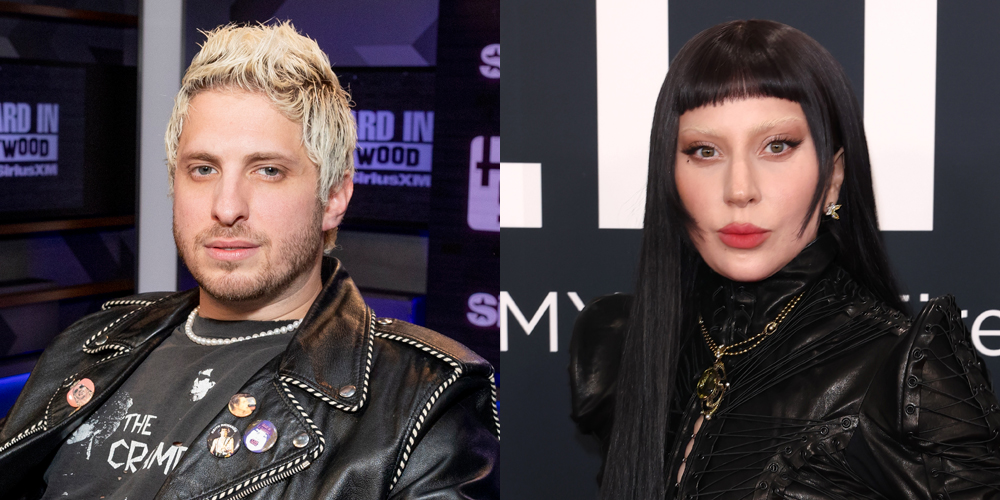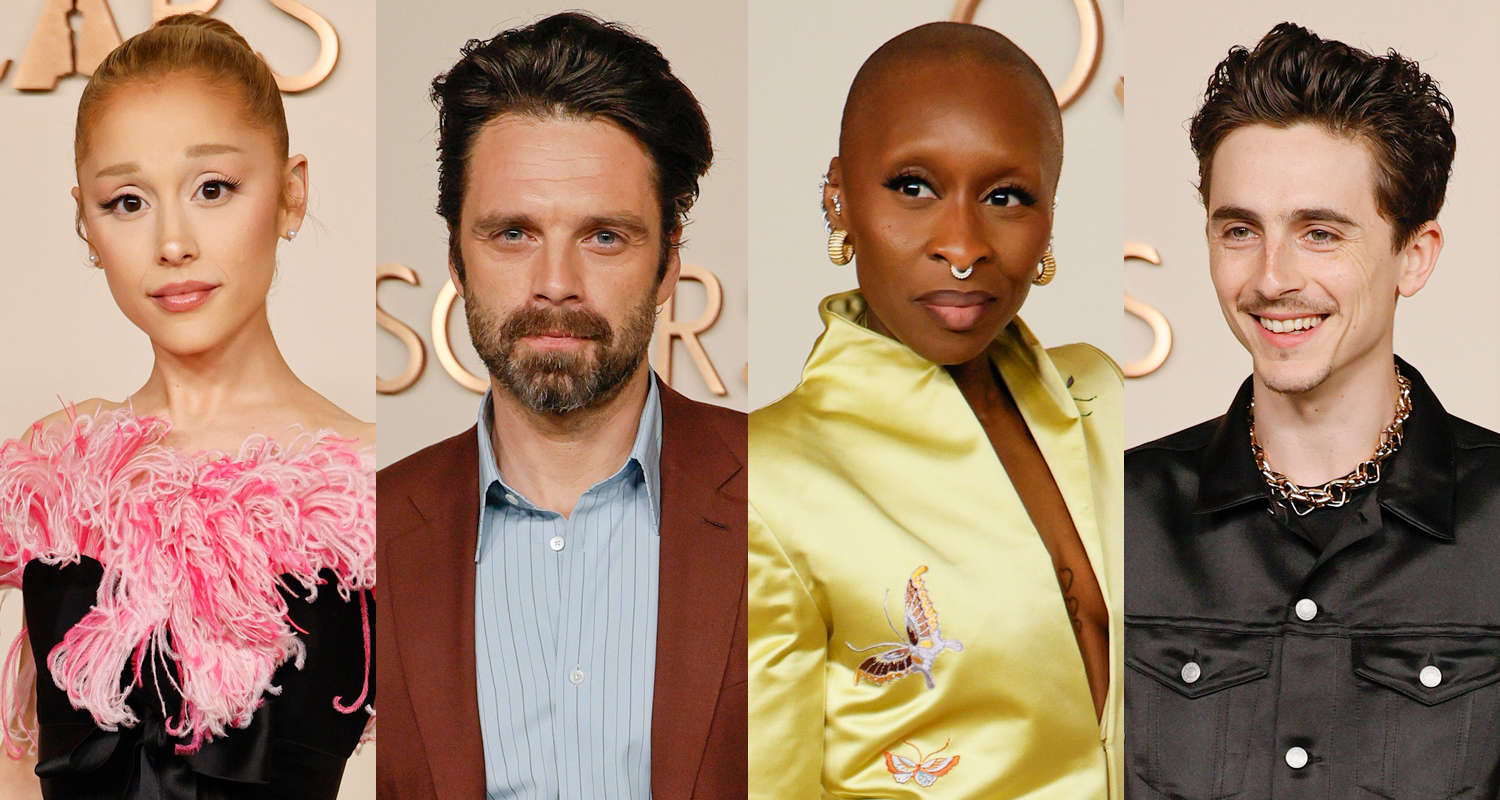ARTICLE AD

I was on the phone with my mother this week and she said in a somewhat serious tone, “I have something to tell you.” Off to a good ominous start. After a brief but pregnant pause she continued, “I saw an ad for ‘Poor Things.’ I don’t think it’s for me.” And that was it! That whole brace-yourself-for-a-catastrophe intro was just to say she’s going to continue her streak of not seeing a single Yorgos Lanthimos film. Ok Mama, thanks for the update! And I get it, the movie has a very exaggerated, bonkers point of view that’s not for everyone. But that’s a big part of why I like Emma Stone — she’s bucked the ingénue mold by choosing quirky, comedic, sometimes freaky parts that suit her taste. Leading ladies can be weirdos too! So Emma has been Oscar campaigning for Poor Things where she’s up for Best Actress and Best Picture as a producer. Amid her spate of recent NYC appearances she spoke with NPR about her lifelong anxiety and how it led her to acting:
In a new interview with National Public Radio (NPR) published Wednesday, the Poor Things actress, 35, opened up about her childhood anxiety, sharing that while she initially had a tough time dealing with it, she found a way to push through.
“I started in therapy, I think around age 8, because it was getting really hard for me to leave the house to go to school,” Stone told NPR. “I sort of lived in fear of these panic attacks.”
The actress, who said that she had her first panic attack when she was 7 years old, added she believed the source of her anxiety when she was younger stemmed from the fear of being separated from her mother. She noted, “it’s a hard age to be able to reason with yourself, at 7 or 8, and tell yourself these things aren’t true. … It was very hard to convince myself otherwise.”
All that changed, however, when Stone started acting at the age of 11. The actress said the craft provided a way for her to focus on the moment without worrying about what happened before or what would happen later. She told the outlet that as an actor, “all of my big feelings are productive, and presence is required.”
Those experiences have altered the way she thinks of anxiety now, Stone said. She shared to NPR that she thinks it can be a positive thing if people know what to do with it.
“I’ve told a lot of younger people that struggle with anxiety, that in many ways I see it as kind of a superpower,” Stone said. “Just because we might have a funny thing going on in our amygdala, and our fight-or-flight response is maybe a little bit out of whack in comparison to many people’s brain chemistry, it doesn’t make it wrong. It doesn’t make it bad.”
“It just means we have these tools to manage,” she continued. “And if you can use it for productive things, if you can use all of those feelings in those synapses that are firing for something creative, or something that you’re passionate about, or something interesting.”
Said Stone: “Anxiety is like rocket fuel because you can’t help but get out of bed and do things, do things, do things because you’ve got all of this energy with you. And that’s really a gift.”
I vaguely remembered Emma talking about anxiety in the past, but it never really hit me how serious it was until this interview. And I have no qualms in admitting that I was teary when she said it came from a fear of being separated from her mother. While I never had anxiety about going to school (that was actually where I thrived), I was a mess at bedtime. I don’t recall being afraid of the dark or a monster, but I was panicked about being alone in my room at night. So for most of my childhood I wasn’t, instead I slept in my mother’s room with her. During my waking hours I felt tremendous shame over it, but climbing into bed with my mother right there truly felt like the only way I could relax and let go of the day. You could say that my anxiety got me out of bed, like Emma says… it just propelled me into my mother’s bed. There was no weaning off plan, it was an overnight switch where all of a sudden I just knew “I don’t need this anymore.” I’m very lucky I have a mother who listened to me and never made me feel bad about my fears — I did that to myself! And just look at the fully-functioning adult I am today! (Stop laughing.) I wonder how Emma feels about her daughter, who’s three, approaching the age when her own panic attacks began. More cause for anxiety, to be sure.
Before ending this piece I have to note that Yorgos and Emma’s previous collaboration, The Favourite, has what I consider to be one of the best lines ever in cinema history. As uttered by Nicholas Hoult: “Must the duck be here?”
Photos credit: IMAGO/RW / Avalon, Xavier Collin / Image Press Agency / Avalon, IMAGO/0 / Avalon and Getty

 1 year ago
40
1 year ago
40 


